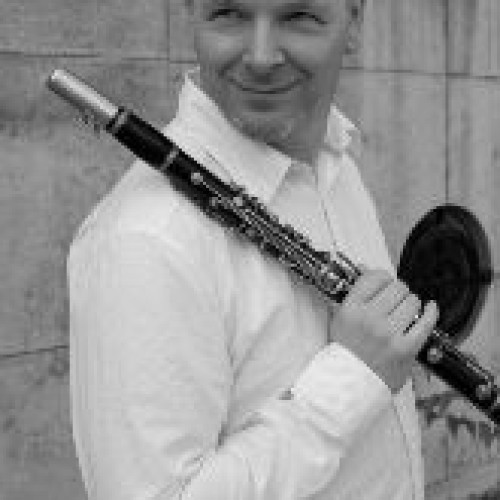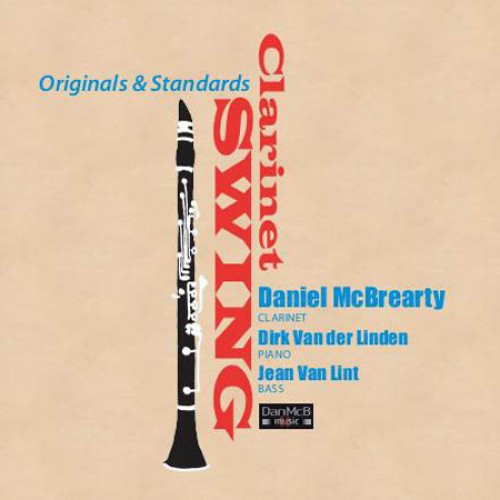
Daniel McBrearty
- Instruments : Clarinet, Tenor saxophone
As a youngster he became fascinated with the music. Without formal jazz education, he learned by listening to records and studying tunes. By age 14 he was jamming with local jazz musicians in his native Wales, and picking up a few paid gigs.
"The music had some kind of pull for me from early on", he says. "I lived with a foster family for a few years when I was very young, my foster-mother was from a family of professional musicians from Manchester area. My foster father loved jazz, and one of the first sounds I remember hearing was Louis Armstrong on,TV. I still remember his trumpet - truly a joyful noise."
"Later, when I lived with my dad again, I started on clarinet, after a few years on violin. There was no jazz education at all then, especially in Wales, it was seen as kind of odd for a kid to even be into it. But I was lucky and had great all round music teaching at school", he says.
"When a family friend gave me an old Benny Goodman record, that was it. I dug into my dad's LP's, Basie, Ella, Louis again, Nat Cole. I just wanted to know how they made that sound. We scraped some money and bought a beat up old tenor - it had a broken key that I fixed with hairgrips - and I played it. I was trying to copy Prez before I knew his name."
"There was an amazing ex-marine bandsman that ran the local music shop - anything you could blow, trumpet, bassoon, whatever - he played and taught them all. He heard me and helped me. He played guitar, and explained chord symbols, how they should be used for improvisation. Later I bought a guitar, a few years later I had taught myself to play some standards. At one point I had a tape of all these old tunes like Moonglow, Sleepy Time - I used to play along to it in the street. I made my own backing tracks."
Leaving Wales, Daniel eventually became an electronics engineer. Musical education continued with occasional private lessons, and playing in bands. "I played behind singers, soul, funk, reggae, a bit of blues and jazz. Anything could happen on stage. I learned to think on my feet and find something to play when needed. And filling behind a vocal line, I found that important and useful."
A debut home-produced jazz-funk CD in 1996 got some attention on UK radio and press. By now he was leading bands occasionally, and still trying to play jazz. In London, small successes came, working with musicians who would later become respected in the pop world, such as Carlos Hercules (Beverley Knight, George Michael) and Joy Malcolm (Moby, Incognito).
In 2001, he married and moved to Belgium, the home of his then wife, after a year in Dublin. Although family life took precedence, he was still playing. A crossover CD with Indian master-percussionist Udhav Shinde led him back to the clarinet, and to explore freer modes of improvisation.
By 2010, Daniel - now divorced and co-parenting his two daughters - was playing full time. "I had given up on playing jazz", he says. "I still loved it, but didn't seem to connect with the right people. So I focused more on songwriting and working with singers, either as a horn player or on guitar."
A visit to New Orleans in 2011 changed that. "The way I was received there, the energy I got from the city, made me believe in it again. I realised how much that music means. For me, there is nothing as healing and joyful in the musical universe."
Back in Belgium, he recorded Clarinet Swing. He also started working with Ilja Scotch, a pianist and singer who works at a local jazz centre dedicated to the sounds of New Orleans, and which regularly hosts musicians from the city.
"Unknown to me, there was a scene here all along - I just hadn't found it yet", says Daniel. Now gigging regularly, and rapidly gaining respect and appreciation, Daniel is playing the music he loves.

